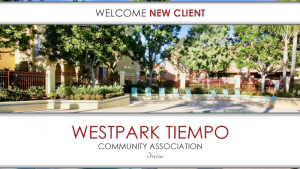 Homeowner and tenant complaints filed with California’s Department of Fair Employment and Housing (“DFEH”) are on the rise and are increasingly lodged against Associations, Boards, and management companies. The complaints are generally directly filed with the DFEH on a variety of grounds, but occasionally involve certain fair housing claims that are referred to the department by the U.S. Department of Housing and Urban Development (“HUD”).
Homeowner and tenant complaints filed with California’s Department of Fair Employment and Housing (“DFEH”) are on the rise and are increasingly lodged against Associations, Boards, and management companies. The complaints are generally directly filed with the DFEH on a variety of grounds, but occasionally involve certain fair housing claims that are referred to the department by the U.S. Department of Housing and Urban Development (“HUD”).
The DFEH is responsible for enforcing state fair housing laws that make it illegal to discriminate on the basis of categories like sex, race, color, religion, ancestry, national origin, disability, medical condition, marital status, or sexual orientation. The department’s broad enforcement authority applies to housing providers including common interest developments, landlords, and property management companies.
A typical DFEH complaint process commences with DFEH complaint including service of a short statement of allegations from the homeowner or tenant. This usually signals the beginning of a rigorous inquiry and investigation for the Association, its Board, and the management company, all of whom may be initially identified as actual or potential respondents.
While the DFEH in theory is supposed to be neutral in its investigations, the investigators working for the department often tend to be sympathetic to the complainant(s) by virtue of the tenets of the department and may therefore adopt the role of an advocate when serving severe demands and questionnaires on the respondent(s).
Moreover, it is important to note that the initial complaint filing with the DFEH does not mean that the DFEH has already determined whether there is reasonable cause to believe any laws have been violated or that the DFEH will in fact prosecute a legal action against the named respondent(s). Rather, it means that the DFEH has preliminarily determined that the received complaint, the allegations, and the named parties fall within the investigative purview of the department and are subject to the laws that the DFEH is tasked to enforce.
Nonetheless, because this process tends to be quite involved with numerous nuanced considerations and legal implications for the Association, its Board, management, and the Association’s insurance carrier, Boards should immediately engage the Association’s legal counsel at the very outset to help it navigate the DFEH’s demanding process and help formulate a comprehensive legal strategy.
The above notwithstanding, as an alternative to the department’s active investigation, the DFEH also has a mediation program, whereby it attempts to resolve complaints through free internal dispute resolution services. If the parties mutually agree to mediate, then the complaint response and the active investigation is stayed pending the outcome of the DFEH mediation.
Otherwise, the DFEH investigation continues, and the department will assess the facts and legal issues of the case. These investigations include, among other things, reviewing information and evidence from complainants, respondents, or other sources. When a respondent answers a complaint, the DFEH investigator reviews it with the complainant. Meanwhile, the respondent(s) may contact the assigned investigator to discuss the complaint, request any needed extension of time to respond to the department’s investigative questionnaires, or to address any other concerns.
Thereafter, the DFEH uses the facts obtained through its investigation to determine if there is reasonable cause to believe that a law the department enforces has been violated. If not, the case is closed. If there is reasonable cause, the investigator notifies the parties of this determination, may advise that the department intends to file a lawsuit in court, wherein the department replaces the complainant(s) as the moving party and substitute in as the Plaintiff, and the DFEH’s legal department will then take over the matter for further handling.
However, before the DFEH files a lawsuit, it typically requires the parties to go to mediation. If the case is not settled during this mediation, the DFEH may proceed with filing its lawsuit in court.
Typical settlement remedies at mediation and/or relief sought in DFEH actions include payment of statutory monetary fines and other damages, attorney’s fees and costs, amendment of Association’s CC&Rs and rules, Board and management staff undergoing fair housing training regarding the rights and responsibilities of housing providers, posting of DFEH fair housing posters throughout the community and/or distributing fair housing brochures to all residents, etc.
Based on the above rigorous DFEH process and the range of challenges it presents, it is imperative that the Association’s Board and management stay ahead of the problem by ensuring that their actions and policies are in accordance with the California Unruh Civil Rights Act, the Federal Fair Housing Act, and that they do not inadvertently run contrary to state and federal laws that prohibit discrimination based on the above cited categories.
 |
Moreover, the Association’s legal counsel should be engaged at the very outset of any DFEH complaint process so it may duly protect the Association’s interests and help the Board navigate the above-outlined demanding process. |
-Blog post authored by TLG Attorney, Vivian X. Tran, Esq.
 In case you missed it, Issue # 56 of our ‘Community Association Update’ newsletter is available now!
In case you missed it, Issue # 56 of our ‘Community Association Update’ newsletter is available now! HOA Lawyer Blog
HOA Lawyer Blog


 It’s our privilege to welcome Summerwind Townhomes of Anaheim Association to Tinnelly Law Group’s growing family of HOA clients.
It’s our privilege to welcome Summerwind Townhomes of Anaheim Association to Tinnelly Law Group’s growing family of HOA clients. It’s our privilege to welcome Pelican Ridge Estates Community Association to Tinnelly Law Group’s growing family of HOA clients.
It’s our privilege to welcome Pelican Ridge Estates Community Association to Tinnelly Law Group’s growing family of HOA clients. Homeowner and tenant complaints filed with California’s Department of Fair Employment and Housing (“DFEH”) are on the rise and are increasingly lodged against Associations, Boards, and management companies. The complaints are generally directly filed with the DFEH on a variety of grounds, but occasionally involve certain fair housing claims that are referred to the department by the U.S. Department of Housing and Urban Development (“HUD”).
Homeowner and tenant complaints filed with California’s Department of Fair Employment and Housing (“DFEH”) are on the rise and are increasingly lodged against Associations, Boards, and management companies. The complaints are generally directly filed with the DFEH on a variety of grounds, but occasionally involve certain fair housing claims that are referred to the department by the U.S. Department of Housing and Urban Development (“HUD”). It’s our privilege to welcome 4S Ranch Master Association to Tinnelly Law Group’s growing family of HOA clients.
It’s our privilege to welcome 4S Ranch Master Association to Tinnelly Law Group’s growing family of HOA clients. It’s our privilege to welcome Niguel Coast Homeowners Association to Tinnelly Law Group’s growing family of HOA clients.
It’s our privilege to welcome Niguel Coast Homeowners Association to Tinnelly Law Group’s growing family of HOA clients. Children are usually considered blessings and a joy to be around. Unfortunately, there is always one slightly rambunctious child who may be prone to causing trouble in Homeowners Associations (“HOAs”). What should an HOA and/or Board of Directors (“Board”) do in such scenarios? Is there anything the HOA can legally do?
Children are usually considered blessings and a joy to be around. Unfortunately, there is always one slightly rambunctious child who may be prone to causing trouble in Homeowners Associations (“HOAs”). What should an HOA and/or Board of Directors (“Board”) do in such scenarios? Is there anything the HOA can legally do? It’s our privilege to welcome Pelican Hill Community Association to Tinnelly Law Group’s growing family of HOA clients.
It’s our privilege to welcome Pelican Hill Community Association to Tinnelly Law Group’s growing family of HOA clients. It’s our privilege to welcome Westpark Tiempo Community Association to Tinnelly Law Group’s growing family of HOA clients.
It’s our privilege to welcome Westpark Tiempo Community Association to Tinnelly Law Group’s growing family of HOA clients. Homeowners Associations (“HOA”) are encouraged to report potential and actual claims to their insurance carriers. In fact, there is usually a provision within the HOA’s
Homeowners Associations (“HOA”) are encouraged to report potential and actual claims to their insurance carriers. In fact, there is usually a provision within the HOA’s